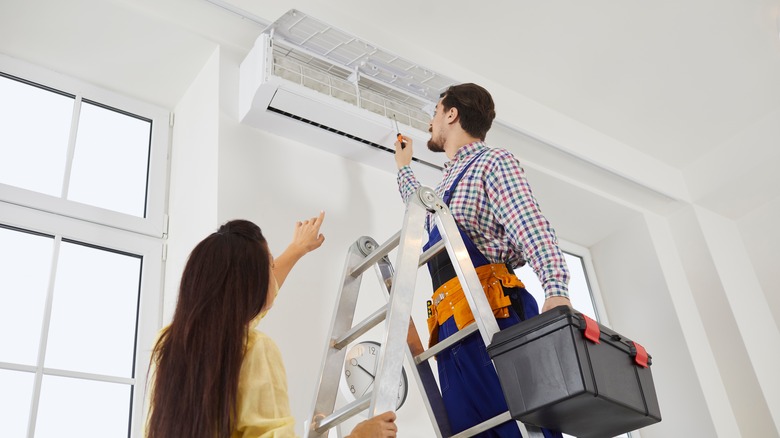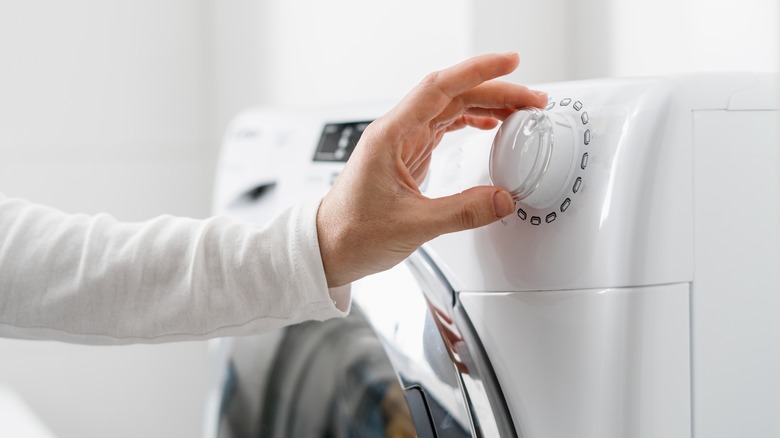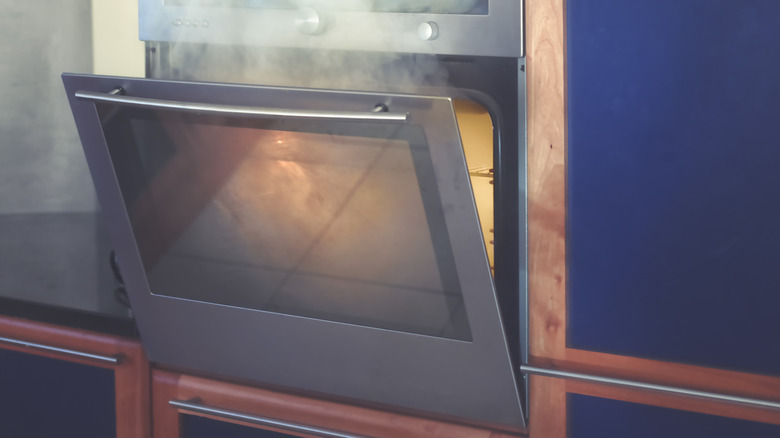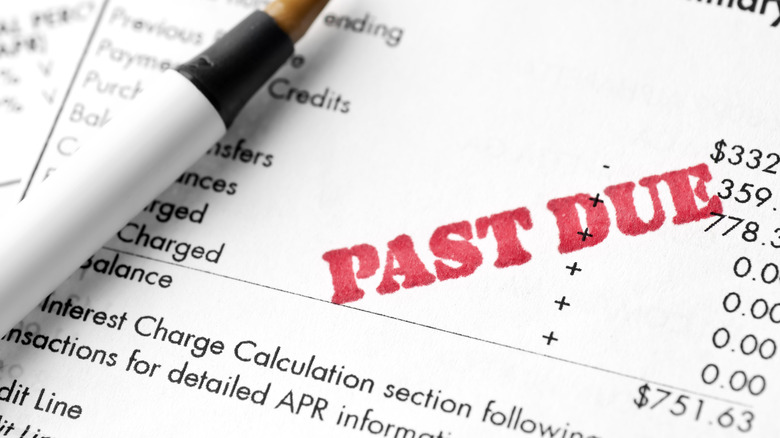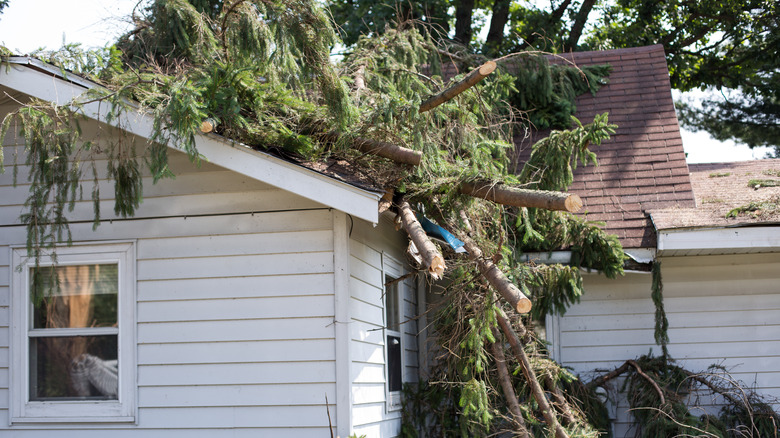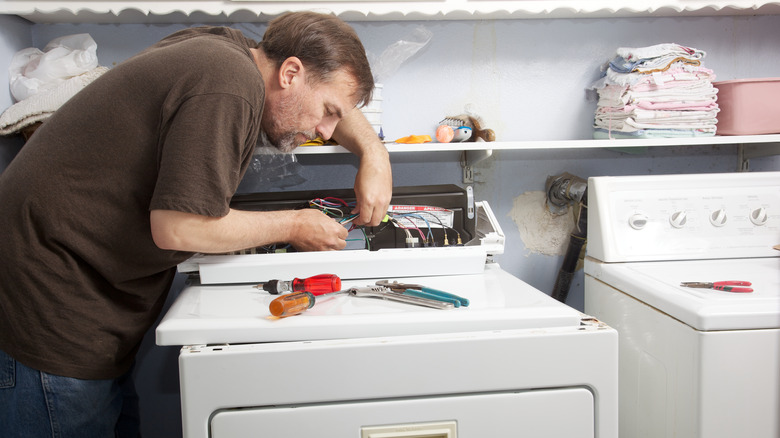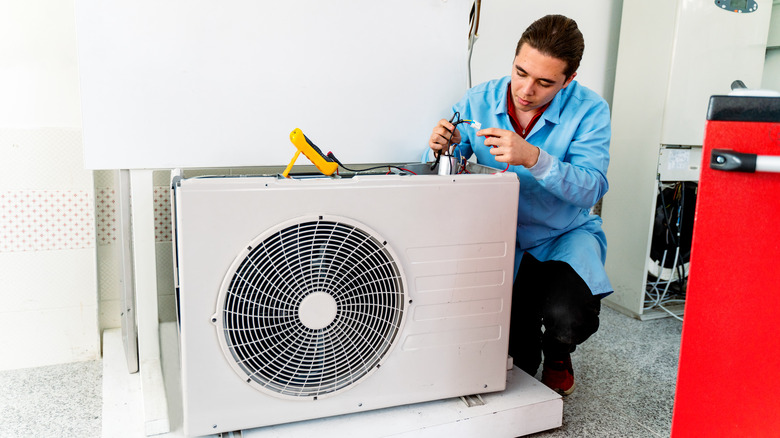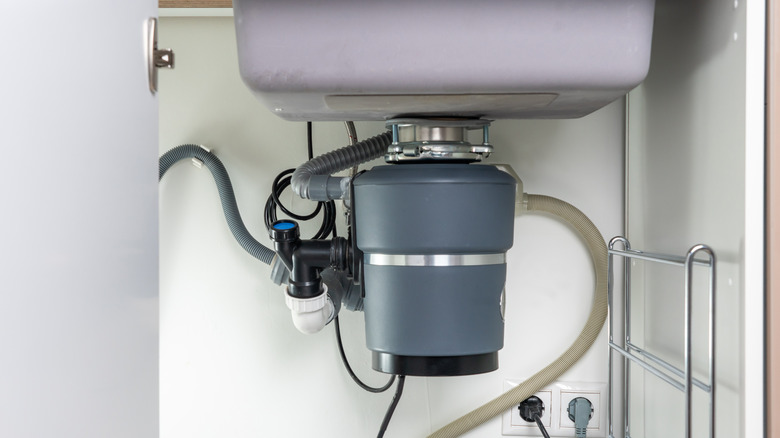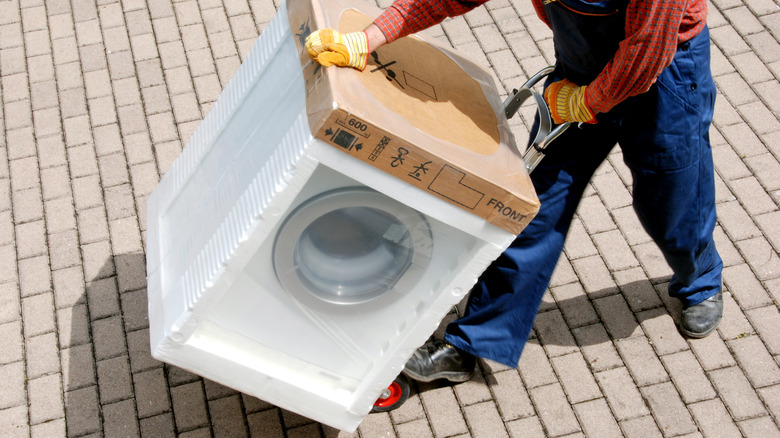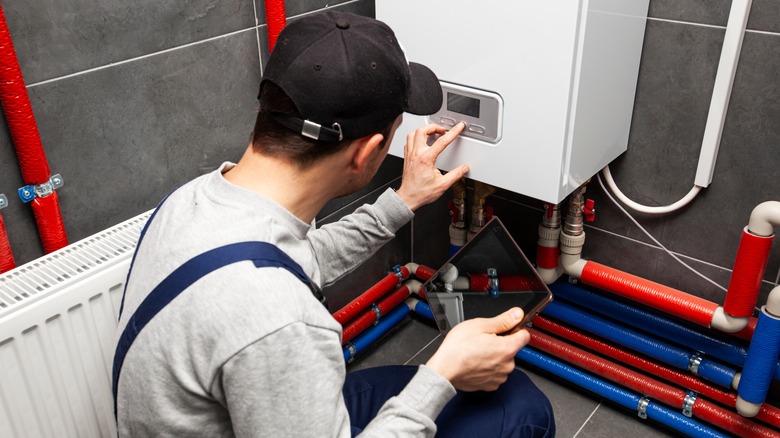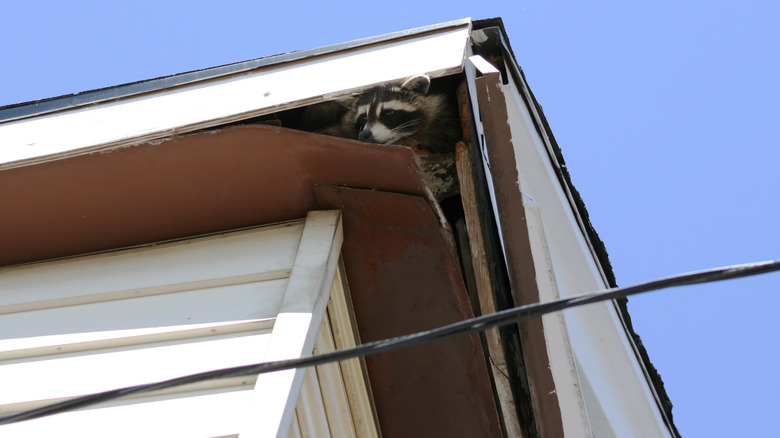12 Common Risky Mistakes That Could Void Your Home's Warranty
It is important to carefully check your home warranty policy. You should know what's covered and what could void your warranty, however innocent the action might seem. While different warranty companies have different rules about what could cancel out an agreement, there are some things that all homeowners should be careful about. One big one is using contractors that need to be approved by your warranty company. Guarantors usually have a network of preferred providers, so going with someone else could mess things up. You might end up with bad service and no coverage for that specific item, which means you'll have to pay for future repairs or replacements.
Even smaller things like not keeping up with regular maintenance can also put your warranty at risk, as can most common DIY fixes. Many agreements require you to take care of your appliances and systems properly. If you neglect them and something breaks, the warranty provider could argue that it's because of negligence, not normal wear and tear, and refuse to cover it. To stay safe, contact your warranty provider with any questions or concerns about a repair. This way you can follow all the guidelines in your policy. Being proactive will help you keep your warranty intact and give you peace of mind about unexpected repairs or replacements.
1. You don't perform regular maintenance
Home warranties are different from home insurance in that they cover very specific circumstances. While home insurance might cover items that are damaged or broken in many ways, warranties only cover normal wear and tear to appliances and home systems. The scope is often so specific that you might even find yourself squabbling with your warranty company about a reasonable definition of normal wear and tear.
For example, there are specific maintenance guidelines that you must follow to ensure your warranty will cover damages. If you don't maintain your HVAC system or washing machine with what the company thinks is regular maintenance, the warranty will be void. For an HVAC system, this would mean annual inspections by a warranty-approved company. While most of us might skip these if everything is functioning as normal, a warranty company might see this as negligence. The same goes for a dishwasher or washing machine. If the manufacturer recommends using a certain kind of cleanser between loads or cleaning out the filters every three months, you must do this. Be sure to document the maintenance you do by keeping receipts and condition reports.
2. You make too many DIY repairs
Home warranty companies usually have a list of approved service providers. If you use someone not on that list to fix something covered by your warranty, it could have serious consequences. Your warranty might be canceled for that item, which means any future claims for it could be denied, leaving you responsible for paying the full cost of repairs or replacements. Companies have preferred service providers to ensure the technicians have the right qualifications to handle your appliances and systems. Unfortunately, you do not have these qualifications.
As frustrating as it might be when the knob on your washing machine pops off, if it doesn't pop right back on — don't try to fix it yourself. If your washing machine is covered under your home warranty, you will need to call for a technician to come take a look, at the risk of possibly voiding your warranty in the future if you don't. To avoid any sticky situations, read over your home warranty carefully before repairing the covered systems. Take special note of any wording about preferred providers or approved brands. This way, you can be sure that any DIY repairs, no matter how big or small, won't void your agreement.
3. You claim an undisclosed pre-existing condition
If the thing that breaks was already broken when you bought the warranty, then the warranty doesn't cover it. It will be void from the start. This is true even if you didn't know the HVAC system was on its last legs, or the oven had bad wiring when you bought the house. To avoid this, it's super important to check everything before you get the warranty to make sure there aren't any problems already there. If you buy a home, the inspection process will typically take care of this. If you don't take an inventory of the condition of the items you plan to add to the warranty, you might be left in the lurch later on.
If you find something that is broken or on its way out during the home inspection, speak to the seller about your options because these items won't be covered by your warranty. Sometimes, the seller will replace the dishwasher or drop the home's price to cover purchasing a new one. If you have already owned your home for a while, you can still purchase a home warranty. Just be sure you aren't buying it with the intent to claim right away, as that is fraud and will void your warranty.
4. You are late paying your premiums
Everybody forgets to pay a bill now and again, but if you want to keep your coverage rolling, you can't forget your home warranty premium for long. Most companies give you about 30 days after a missed payment to catch up, but some might cut you off right away. To ensure you're protected, paying your premiums on time is best to avoid any gaps in your warranty. That grace period is there to help out if you're going through a tough financial time or if something unexpected comes up and you need to wait for a paycheck or two before you're back on track. If you settle your payment within those 30 days, you can usually get your coverage back without any issues. Just be sure to read through your warranty agreement since each company has its own rules.
To keep your warranty from getting canceled, you can set up automatic payments. This way, the premium comes out of your account each month without you even needing to think about it. In addition, some home warranty companies will also allow you to pay for your entire year upfront.
5. Your home (or items inside it) is destroyed by an act of God
In simple home warranty terms, an "act of God" means something really bad happened that you couldn't have stopped or predicted, like a natural disaster. Think earthquakes, floods, hurricanes, tornadoes, or lightning strikes. Your home warranty does not cover these events because they're so out of your control. Instead, you need homeowners insurance with special clauses to cover these events. Unfortunately, while your insurance may pay to have your oven, air conditioner, and the like replaced after a disaster, the very same disaster and any repairs made after have voided your home warranty.
Remember that home warranties are only in place to protect consumers from lemons, or bad products. If something comes home from the store and is poorly made, or wears out more quickly than it was supposed to, the warranty will cover its repair or replacement. Acts of God are unpredictable and different. Claiming an item damaged in such a way constitutes fraud, as the warranty was voided the moment the thing became damaged outside of normal wear and tear.
6. You don't follow the manufacturer's guidelines
Knowing the difference between home insurance and a home warranty is essential to understanding what's covered when things go wrong. Home insurance is all about accidental damage from unexpected events like fires, theft, or natural disasters. On the other hand, a home warranty is there to take care of the costs when important home systems and appliances break down because of normal wear and tear. Because of this, if something breaks because it was used improperly or not taken care of, the home warranty will be voided.
If you overload your dishwasher and the spray arm breaks off, or you forget to clean your dryer's lint trap and it short-circuits — that is not following the manufacturer's guidelines for the best use of the item. If this happens, it's best not to try and be sneaky and fix it anyway so the item remains under warranty. This action technically also voids the warranty as the repairs are not carried out by a certified technician. In the future, representatives from the warranty company could also make note of the dishonesty when they are there to fix something else. Instead, if you break an item on your home warranty read the terms carefully. You can call to speak to a customer service representative to possibly delete the item and add its replacement to avoid the cancelation of coverage.
7. The item was installed incorrectly
It's super important to get the installation of all your home systems and appliances right if you want to keep your warranty intact. If you or some random contractor not approved by the warranty provider messes up the installation of things like your HVAC system, washing machine, oven, or even toilet, it might void your warranty coverage. Most home warranties require these installations to be done by professionals so they meet industry standards and specifications from the manufacturer. If it's done wrong, the warranty might not cover any repairs or replacements needed. That means you're stuck paying for those costs yourself.
To make sure your home warranty stays valid, you have to follow the rules about installations. When purchasing a new item, read the wording of your warranty carefully. If anything is unclear, call your provider (or use live chat on its website) to confirm the proper procedure. In general, the rules are to stick to approved contractors and only try to do it yourself if the warranty says you can.
8. You wait too long to make a claim
Timing is essential when considering the validity of a home warranty. Don't wait to file a claim because it could affect whether or not your coverage is still valid. If you wait too long, you can void the warranty. This is different than the waiting period when you first purchase the policy, which is in place to prevent fraud. Once the initial waiting period is over, it's best to report any issues or problems with your home right away. This shows that you're taking good care of your home and that you're not causing any damage on purpose.
If you wait too long to report a problem, you might be accused of neglecting your home or making the problem worse. Home warranties usually cover normal wear and tear, not damage caused by the homeowner. As time passes, problems might escalate. The worse things get, the more likely your warranty will be void, as the provider won't think it's from regular use. Plus, if you wait to file a claim until after your agreement is over, you might not get covered, even if the issue happened during the warranty period. On the last day of coverage, a warranty is void – no matter what happened while it was active.
9. You caused accidental damage to the item
If something covered by a home warranty gets accidentally damaged, it can void the agreement. Even if the damage wasn't on purpose, it isn't considered normal wear and tear, which is typically the only thing warranties look after. Home warranties are made to deal with issues caused by a home's systems and appliances breaking before their time during typical use. Accidental damage is different from that, so it is covered by insurance — not a warranty. You should be careful to avoid accidentally damaging things because it could not only cost you more money to fix out of pocket, but it could also cancel the warranty for that item.
Unfortunately, the validity of your home warranty doesn't change based on if you damaged the item. This means that if your grandmother tripped over the dishwasher door and pulled it out of the cabinet, or your Airbnb guest put a fork down your garbage disposal and dulled the blade — you are still on the hook. Be careful when hosting guests in your home, as the damage they cause to items covered under a warranty will void the agreement.
10. You forget to register your new appliance
When you purchase a new appliance or home system, remember to register it with your home warranty if you want it covered. These agreements only cover what is specifically written in the contract. So if you swap out your dishwasher or update your HVAC, it voids the warranty on that item because it's not the same model that was first covered. If anything happens, you will then have to pay out of pocket.
To avoid this, reach out to your warranty provider. Usually, they'll want to know some details about the new item, like what it is, how old it is, and what brand it is. They might even want to check it out themselves with a home inspection. Just be aware that there will probably be an extra fee for adding the new item to your warranty. Once you've gone through all the steps, the provider will update your warranty contract to include the new item. It's really important to follow all their instructions and make sure that the new thing fits the rules and conditions of your existing warranty, so you don't void it on accident.
11. You use unauthorized service providers
Home warranty contracts come with a list of approved contractors or companies that can do repairs or replacements. While this means you can't DY most repairs, it also means you can't hire the person you want. If you hire someone from outside that list, your warranty might become useless. This rule ensures only qualified professionals, who meet the warranty provider's standards, take care of the repairs.
While you might have an established relationship with a contractor, or even have a family member on standby who could "do it cheaper," the home warranty company doesn't know or trust them. If you decide to go around the preferred list and hire someone you like, you will void your warranty automatically. Even if you are promised that the work will be so good that no one will be able to tell, there is always the possibility that an authorized repairman will spot the work later on down the line. If this is reported, the warranty is void.
12. Animals caused the damage
Damage caused by animals poses a unique challenge to home warranty coverage. Normally, home warranties are meant to deal with regular wear and tear on appliances and systems. But when animals start chewing on wires, building nests in your HVAC, or causing other kinds of damage, it's considered an outside issue. So, unfortunately, your home warranty won't cover it, and you could even lose coverage for the damaged item. In these cases, you'll have to rely on your home insurance instead, which is better equipped to handle animal-related damage.
There are a few things you can do to protect your items under warranty from pets and wild animals. Put up fences around your outdoor HVAC units to scare away wildlife. Keep your pet's food inside so you don't attract any critters. Close up any openings around your house to stop small animals from coming in. If you can, put up lights or devices that make noise when something moves to keep nighttime visitors away. Doing these things will keep your home and its parts safe and make keeping your home warranty active easier.
